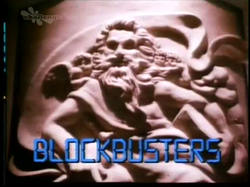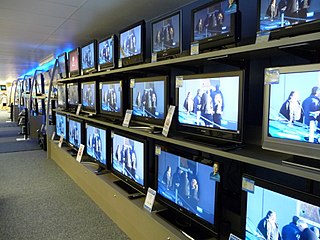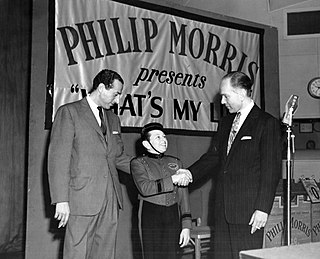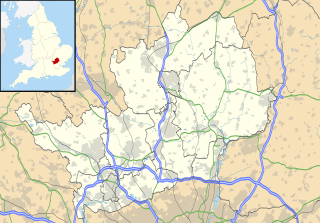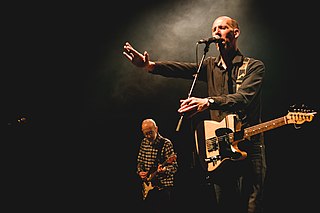
Press Your Luck is an American television daytime game show created by Bill Carruthers and Jan McCormack. It premiered on CBS on September 19, 1983, and ended on September 26, 1986. In the show, contestants collected spins by answering trivia questions and then used the spins on an 18-space game board to win cash and prizes. The contestant who amassed the highest total in cash and prizes kept his/her winnings for the day and became the champion. Peter Tomarken was the show's host, and Rod Roddy was the primary announcer. John Harlan and Charlie O'Donnell filled in as substitute announcers for Roddy on different occasions. Press Your Luck was videotaped before a studio audience at CBS Television City, Studios 33 and 43, in Hollywood, California. The show was a retooling of the earlier Carruthers production Second Chance, which was hosted by Jim Peck and aired on ABC in 1977.

Countdown is a British television show involving word and number tasks. It is broadcast on Channel 4. It is currently presented by Nick Hewer, assisted by Rachel Riley, with regular lexicographer Susie Dent. It was the first programme to be aired on Channel 4 and 80 series have been broadcast since its debut on 2 November 1982. With over 7,000 episodes, Countdown is one of the longest-running game shows in the world, along with the original French version, Des chiffres et des lettres, which has been running on French television continuously since 1965. Countdown was initially recorded at The Leeds Studios for 27 years, before moving to Manchester-based Granada Studios in 2009. Following the development of MediaCityUK, Countdown moved again in 2013 to the new purpose-built studios at Dock10, Greater Manchester.
Liza Tarbuck is an English actress and television and radio presenter.

The Paul O'Grady Show is a British comedy chat show presented by comedian Paul O'Grady, first shown on 11 October 2004. The programme is a teatime chat show consisting of a mixture of celebrity guests, comic stunts, musical performances, and occasionally viewer competitions.
Hollywood Showdown was an American game show that aired on both PAX and Game Show Network from January to November 2000, then returned solely to GSN on January 1, 2001 and ran until March 30 of that year. Reruns aired on GSN again from September 2004 to April 2005 plus June 2006 and June 2007 on TV Guide Network. Todd Newton served as host, with Randy West announcing.
Chain Letters is a British television game show produced by Tyne Tees. The show was filmed at their City Road studios in Newcastle Upon Tyne and first broadcast on ITV in the United Kingdom from 7 September 1987 to 6 July 1990, then again from 2 January 1995 to 25 April 1997. The show itself was based on a failed 1985 American game show pilot of the same name hosted by Jim Peck.
Blankety Blanks is an Australian game show based on the American game show Match Game. It was hosted by Graham Kennedy on Network Ten from 1977–1978.

Catchphrase is a British game show based on the short-lived U.S. game show of the same name. It originally aired on ITV in the United Kingdom between 12 January 1986 and 23 April 2004. A currently running revival premiered on ITV on 7 April 2013.
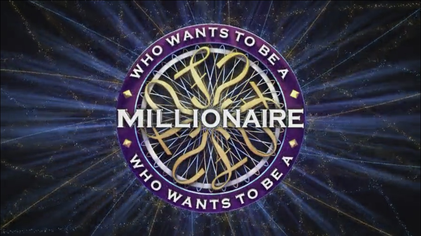
Who Wants to Be a Millionaire? is a British television quiz show, created and produced by David Briggs, and made for the ITV network. The show's format, devised by Briggs, sees contestants taking on multiple-choice questions, based upon general knowledge, winning a cash prize for each question they answer correctly, with the amount offered increasing as they take on more difficult questions. To assist each contestant who takes part, they are given lifelines to use, may walk away with the money they already have won if they wish not to risk answering a question, and are provided with a safety net that gives them a guaranteed cash prize if they give an incorrect answer, provided they reach a specific milestone in the quiz.
Connections is a British game show that aired on ITV from 26 April 1985 to 6 June 1990. The daytime version is hosted by Sue Robbie from 1985 to 1988 and Simon Potter from 1989 to 1990, while the primetime version is hosted by Richard Madeley.

Deal or No Deal is the American version of the international game show of Dutch origin of the same name. The show is hosted by actor-comedian Howie Mandel, and premiered on December 19, 2005 on NBC. The hour-long show typically aired at least twice a week during its run, and included special extended or theme episodes. The show started its fourth season on August 25, 2008, a day after NBC's coverage of the 2008 Beijing Olympics ended. A daily syndicated half-hour version of the show debuted on September 8, 2008 and continued for two seasons.

You Don't Say! is an American television game show that had three separate runs on television. The first version aired on NBC daytime from April 1, 1963 to September 26, 1969 with revivals on ABC in 1975 and in syndication from 1978 to 1979. The last two incarnations were executive produced by Ralph Andrews and produced and directed by Bill Carruthers.
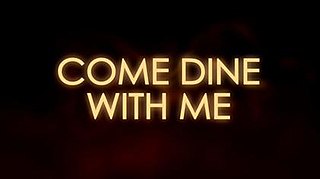
Come Dine with Me is a popular Channel 4 cooking programme shown in the United Kingdom. It was produced by ITV Studios until 2013, when Shiver Productions took over. The first broadcast was in London, January 2005. The show has either four or five amateur chefs, who must host a dinner party for the other contestants and are from a specific region. Often times people are placed together as they have opposing opinions and views. Each competitor then rates the host's performance with the winner winning a £1,000 cash, which is announced by the competitor who hosts the last the dinner party of the week. An element of comedy is added to the show through comedian Dave Lamb, who provides a curt, bitingly sarcastic and often times ironic narration.

Wheel of Fortune was a British television game show based on the American show of the same name created by Merv Griffin. Contestants compete to solve word puzzles, similar to those used in Hangman, to win cash and prizes. The title refers to the show's giant carnival wheel that contestants spin throughout the course of the game to determine their cash and/or prizes. The programme aired between 19 July 1988 and 21 December 2001 and was produced by Scottish Television (STV) for the ITV network - having effectively replaced Now You See It as STV's prime time game show offering for the ITV network. It mostly follows the same general format from the original version of the programme from the United States, with a few minor differences.

The Graham Norton Show is a British comedy chat show presented by Graham Norton. It was initially broadcast on BBC Two, from 22 February 2007, before moving to BBC One in October 2009. It currently airs on Friday evenings, and is usually repeated a few nights later.
Qui veut gagner des millions? is the French version of Who Wants to Be a Millionaire?, which originated in Great Britain on the ITV network. The aim of the game is to win the top prize of €1,000,000 by answering 12 multiple-choice questions correctly. It is broadcast on the TF1 network, and was hosted by Jean-Pierre Foucault from 2000 until 2019, then by Camille Combal.
Family Feud was an Australian game show based on the American show of the same name. The program ran on the Nine Network from 1977–1984, and on the Seven Network from 1989–1996. The program has been revived twice, in 2006 and 2014.

The Chase is a British television quiz show broadcast on ITV and hosted by Bradley Walsh. Contestants play against a professional quizzer, known as the "chaser", who attempts to prevent them from winning a cash prize. The chasers are Mark Labbett, Shaun Wallace, Anne Hegerty, Paul Sinha and Jenny Ryan. Labbett and Wallace have both been chasers since series 1, while Hegerty joined in series 2, Sinha in series 4 and Ryan in series 9.
The Biggest Game in Town is the fourth incarnation of the Bob's Full House format. The series was a daily interactive quiz show, where three contestants competed to fill in their Bingo-style card, by correctly answering questions covered up a number but incorrect answers causes players to freeze out of the next question, later, a ball being removed from their board. The show was presented by Steve Le Fevre for most of the episodes, Bobby Davro stood in as host for 3 episodes on 15 and 16 November. The show aired 6 episodes a week from Mondays to Fridays with 1 episode airing from Mondays to Thursdays and 2 episodes airing on Fridays. The Mondays to Fridays lunchtime episodes aired at 1:40pm while the Friday teatime episodes aired at 5:30pm.
